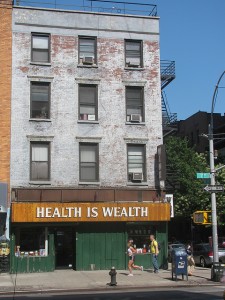New Yorkers Losing Health Insurance Under ACA?
Nov 1st, 2013

Now that is an interesting question. According to a story in the New York Post, that number is 100,000 individual health insurance plans. Many of those cancellations are from New York State’s popular Healthy New York affordable health insurance program. Because of the Affordable Care Act and the introduction of the New York Health Insurance Exchange, the program for individuals and sole proprietorships is being cut. These groups are now being referred to look for health insurance at the state health insurance exchange known as The New York State of Health.
This seemingly arbitrary cancellation of individual health insurance plans ahead of the implementation of the ACA next year has gripped the national headlines this week. The accusation is that the Obama administration knew way back in 2010 that certain groups would lose their insurance because of health care reform, according to a report from NBC’s investigative team.
Many of the subsequent stories and editorials are saying that President Obama’s promise of “If you already have health insurance, you can keep it,” was a lie. While strictly speaking this is true, it’s worth going a little more in-depth about why this is all happening.
Grandfathered health insurance plan
The part of the ACA that’s at play here is the section having to do with “grandfathered” health insurance plans. What that term refers to is individual health insurance plans that were already in existence when the ACA was signed into law on March 23, 2010. Anyone who was already enrolled in a plan at that point is permitted by law to keep that plan even though it doesn’t meet all the new standards of the ACA. The key word there is all, grandfathered health insurance plans still need to meet some of the requirements of the ACA.
A grandfathered plan doesn’t need to cover medical services in the 10 essential health benefit categories, cover preventative medical services free of cost, or protect your choice of doctors and access to medical care.
However, your grandfathered plan does need to end lifetime limits on coverage, end arbitrary cancellation of health coverage, cover adult children up to age 26, provide an easy-to-read summary of benefits, and hold your health insurance company accountable to spend premiums on health care rather than being held as profit (source).
Individual health insurance on the exchange
With all that in mind, it might not be hard to imagine why so many people’s plans are being discontinued under the Affordable Care Act. The individual health insurance market has long been the wild west of health insurance.
It’s unfortunate though that people who are currently comfortable and happy with their level of coverage are suddenly expected to adjust to a whole new health insurance plan, maybe not even through the same company. So what do you do if you’re in this group? The natural move is to shop for a health insurance plan at the exchange, either state or federal.
These exchange plans meet all the requirements of the ACA and also include a healthy federal health insurance subsidy if your income is between 100 and 400 percent of the Federal Poverty Line.
Advocates argue that this is a good thing because the exchange plans will be more comprehensive and affordable (subsidies), so really these folks who are losing their plans are getting more than they’re losing because of the ACA. While this will likely be true for a lot of people with discontinued plans, they’ll get a nice boost from the subsidies, and the abolition of lifetime coverage limits, and no longer have to worry about losing their health insurance plans. It’s also just as likely to cause grief for these people buying on the exchange for one particular reason, coverage networks.
The majority of health insurance companies that sell policies at the exchanges are not using their full network of doctors and hospitals for their exchange plans. They are only offering in most cases severely reduced networks that are not easy to explore and research from the exchange websites before you buy a plan. This will prove to be dangerous for a lot of people.
A nightmare scenario would be a person who got kicked off their old individual attempting to purchase what appears to be the nearly identical plan from the same company at their health insurance exchange only to find out that it doesn’t include their regular doctors or hospitals. In some cases, the closest emergency facilities won’t be covered by a person’s new exchange plan making a time-sensitive medical emergency into a numbers game of out-of-network costs. Just look at New Hampshire.
It’s easy to scoff at people who might be so foolish as to not research network sizes before buying an exchange plan but as I mentioned before, insurers are not making readily available the size of their network at the exchange website.
The kicker to all this is that if you buy a health insurance plan at an exchange then you cannot switch to another exchange health insurance plan until the following year. You can of course drop coverage if you don’t want it or want to buy a health insurance plan off of the exchange. But if you want another exchange plan that includes your subsidy then you’re out of luck until the next open enrollment period in fall 2014 for plans beginning in 2015.
Since the legislation was signed into law, it’s never been a secret that the Affordable Care Act will have its winners and losers. But some folks, including those 100,000 New Yorkers, could lose a lot more than just their old health insurance plans because of these new reduced networks.
Related posts from our blog:
No related posts.
Tags: aca | affordable care act | health insurance | healthy ny | New York | obama | obamacare